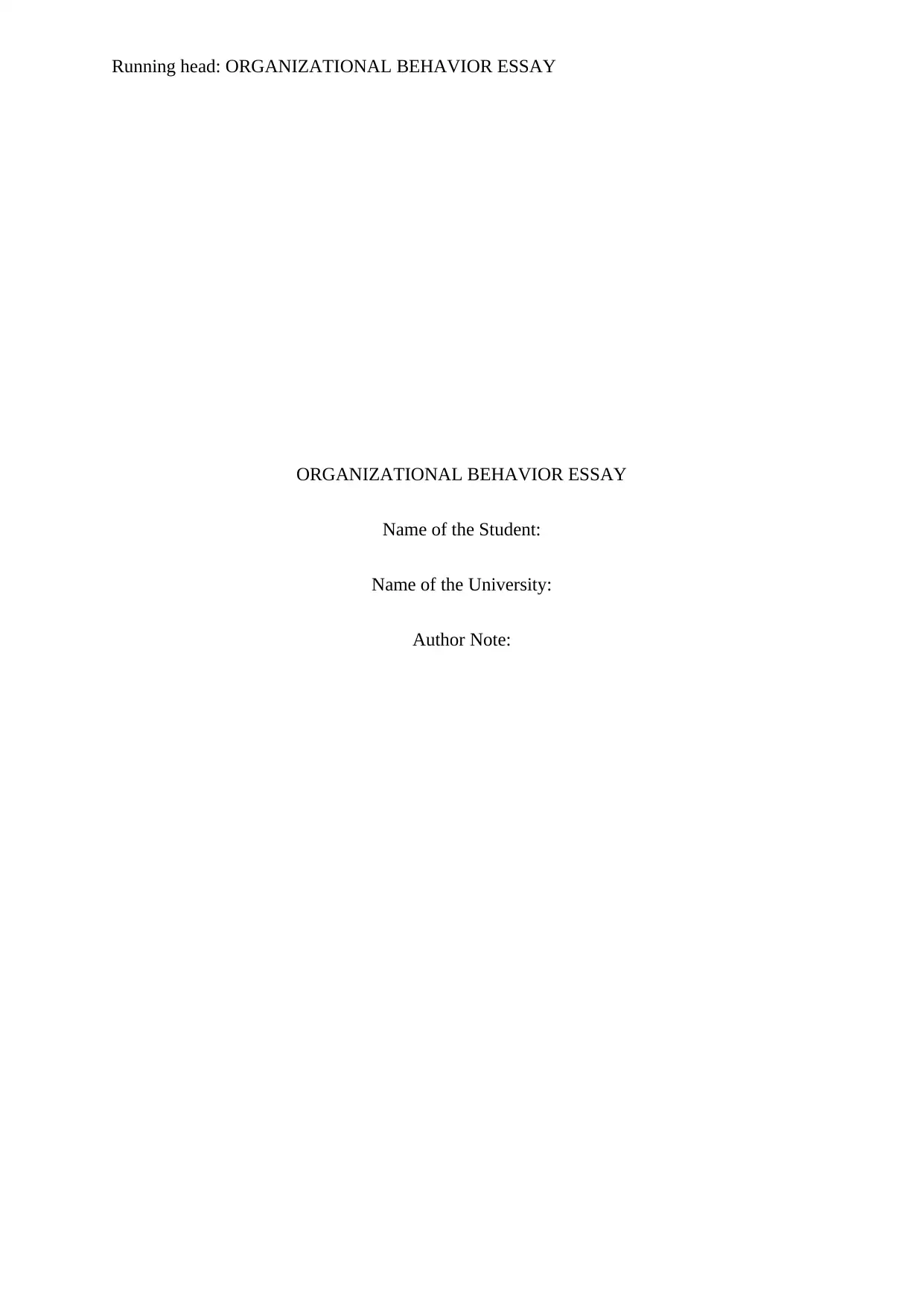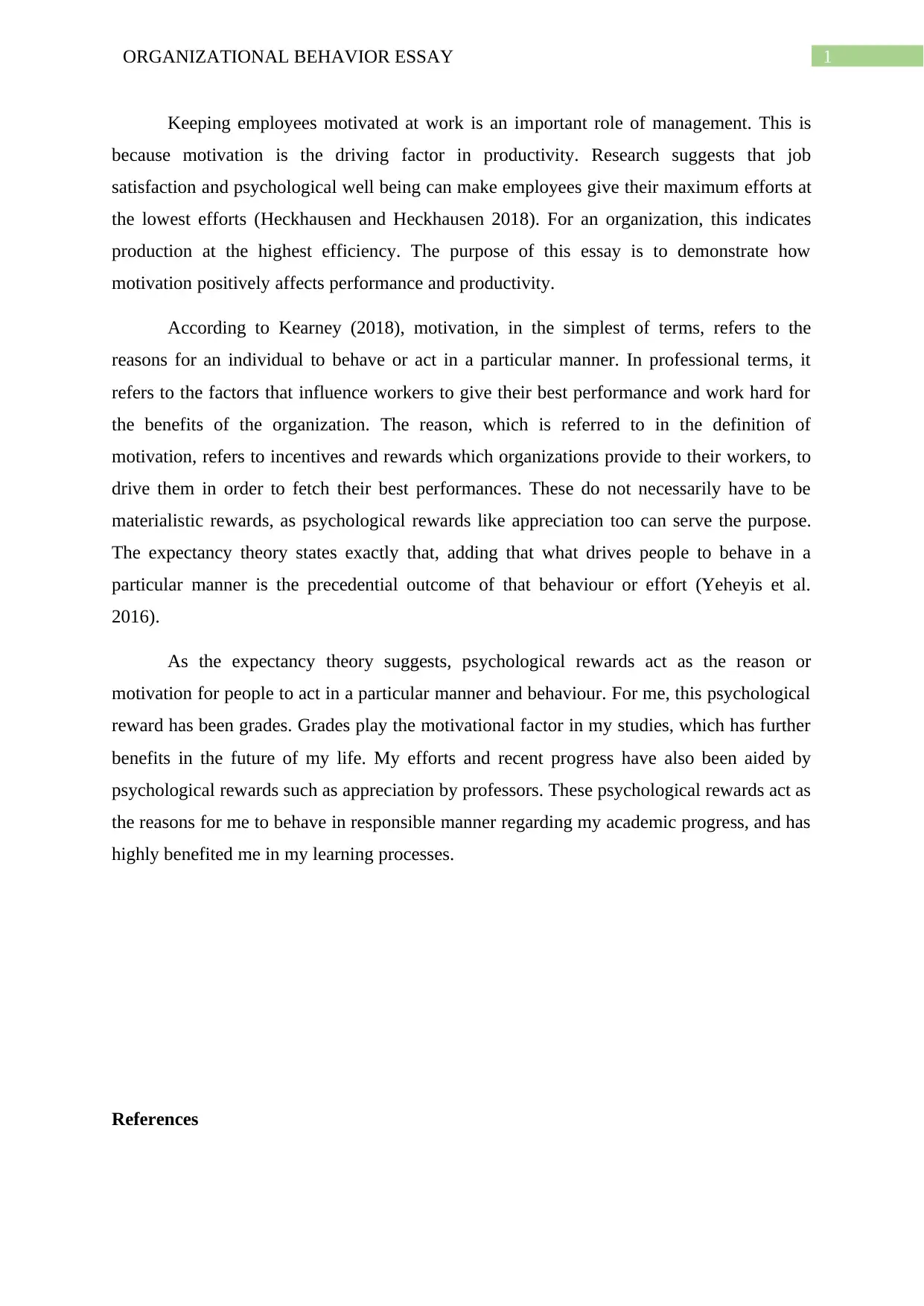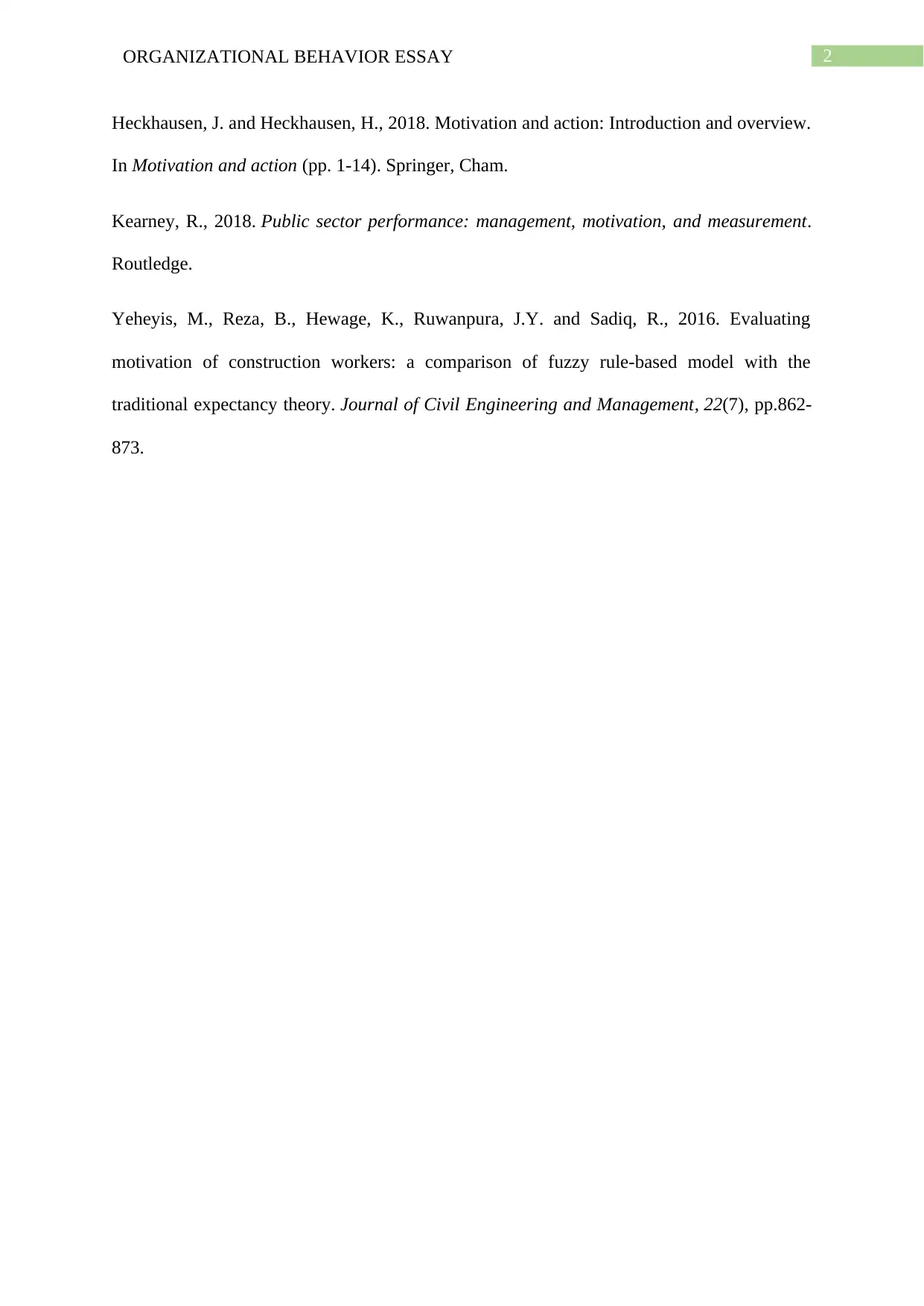Management and Organizational Behavior Essay on Employee Motivation
VerifiedAdded on 2023/04/11
|3
|388
|125
Essay
AI Summary
This essay explores the significant role of employee motivation in enhancing organizational performance and productivity. It begins by highlighting motivation as a crucial factor, supported by research indicating the positive impact of job satisfaction and psychological well-being on employee effort. The essay defines motivation and discusses various incentives, including both materialistic and psychological rewards, which drive employees to perform their best. It then delves into the expectancy theory, emphasizing how the anticipated outcomes of behaviors influence individual actions. The author uses personal experiences, such as the motivational effect of grades and professor appreciation, to exemplify these principles. References to key academic sources, such as Heckhausen & Heckhausen (2018) and Kearney (2018), are provided to support the arguments. The essay also references Yeheyis et al. (2016) which evaluates worker motivation.
1 out of 3









![[object Object]](/_next/static/media/star-bottom.7253800d.svg)